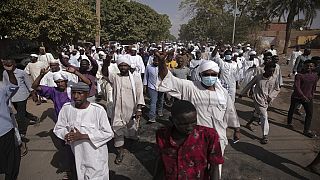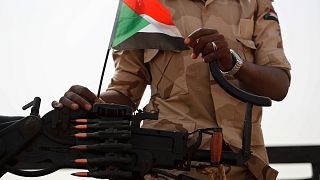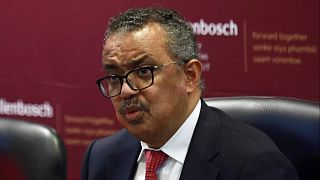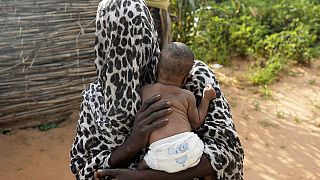Sudan
Here are the highlights since Monday's coup in Sudan, where the military arrested most of the civilian leaders with whom they had shared power since the fall in 2019 of dictator Omar al-Bashir.
Mired in a transition to civilian power supposed to end in 2023, Sudan has experienced for several weeks a resurgence of tensions: blocking of the main port by tribes unhappy with a peace agreement, failed coup, sit-in of pro-army in front of the presidential palace, leading to a reactionary demonstration of tens of thousands of civilians to "save" their "revolution".
New coup
At dawn on October 25, almost all civilian members of the transitional government were arrested, including Prime Minister Abdallah Hamdok, after refusing to support the ongoing "coup.
The head of the army, General Abdel Fattah al-Burhane, announced on state television the dissolution of the transitional authorities, the dismissal of prefects and ministers and declared a state of emergency.
He said he still wanted "a transition to a civilian state and free elections in 2023" and that Sudan remained bound by its international agreements, having recently begun the process of recognizing Israel.
The Prime Minister's office calls on Sudanese to protest peacefully.
At least seven people were killed and 80 wounded by army fire in Khartoum during massive demonstrations denouncing the coup.
The coup was widely condemned by the international community, which called for the release of the civilian leaders.
Washington suspended $700 million in aid to Sudan.
Civil disobedience
On the 26th, thousands of Sudanese again demonstrated against the army in Khartoum, blocking streets with barricades. Security forces were deployed with armored vehicles on bridges and major roads.
Most stores are closed after a call for "civil disobedience". Air traffic in Khartoum is suspended.
The European Union is threatening to suspend its financial support if the military does not hand over power immediately.
In the evening, after numerous calls for the release of the Prime Minister, whom the head of the army was holding at home, Abdallah Hamdok was taken back to his home.
International pressure
On the 27th, the security forces increased the number of arrests of activists and demonstrators, while clashes continued at the barricades.
The African Union suspended Sudan from its institutions and the World Bank stopped providing aid.
The UN envoy to Sudan met with General Burhane and Prime Minister Hamdok, who was "not free to move".
UN calls for a civilian-led government
On the 28th, demonstrations and violence continued, resulting in another death.
After several days of laborious negotiations, the UN Security Council called for the re-establishment of a "transitional government led by civilians", a request also made by US President Joe Biden.
The head of state television was dismissed and the FM radio stations were sealed off.
Call for restraint
On the 29th, UN boss Antonio Guterres called on the army "to exercise restraint" during the demonstrations planned for Saturday in Khartoum, while opponents of the putsch promised "a million" Sudanese in the streets.











01:25
MSF: Access to healthcare in Sudan 'almost impossible' as attacks on healthcare facilities increase
00:44
Mali junta chief extends army rule by five years, rules out elections
01:05
Ethiopia's mega-dam on the Nile is "now complete", Prime Minister says
01:09
Sudan: RSF paramilitaries and allies declare parallel government
01:09
Guinea presents draft for new constitution, referendum set for September
01:00
Detained Chadian opposition leader Succes Masra ends hunger strike